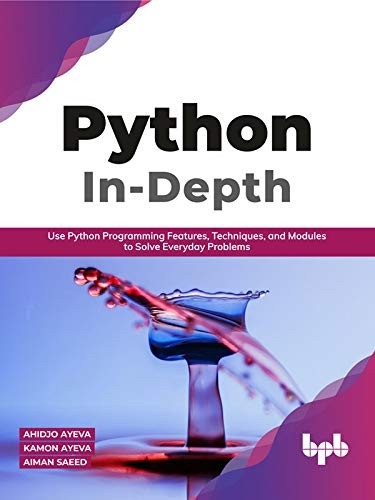
Build it with Python, the popular and batteries-included programming tool
Key Features
● Get familiar with the fundamentals of Python.
● Understand the OOP paradigm and learn to write your custom object classes.
● Explore tools and techniques to measure code execution for Performance Optimization.
● Understand how Python is used in the main Cryptographic mechanisms.
Description
“Python In-Depth” gives you a detailed presentation of the possibilities for solving everyday problems, even complex ones using Python.
You will begin by setting up Python in your system and then learn about the fundamentals of Python so that you have a rock-solid foundation to build upon. You will explore the foundations of Python programming, such as the built-in data types, functions, objects and classes, files, etc.
You will then explore the different programming paradigms such as OOP, Functional, and Concurrent, and find the best approach given a situation. You will also learn how to utilize an interchange format to exchange data and understand how to carry out performance optimization, effective debugging, and security, among other techniques. Towards the end, you will enjoy two chapters dedicated to two domains where Python usage is currently very strong: Data Science and Web Development.
What will you learn
● Learn how to improve your Python Code Quality.
● Explore the techniques and frameworks for Python GUI Programming.
● Solve Data Science and Machine Learning problems using Python.
● Get familiar with Python web frameworks; Django and Flask.
Who this book is for
This book is for anyone who is new to Software Development and wants to learn Python. Existing Python users can also use this book for a quick reference for the fundamentals and the features introduced in Python 3.7.
Table of Contents
1. Getting Started with Python
2. Program Flow and Error Handling
3. Functions, Modules, and Functional Programming
4. Useful Modules and Libraries
5. Object Orientation
6. Decorators and Iterators
7. Files and Data Persistence
8. Context Managers
9. Performance Optimization
10. Cryptography
11. Concurrent Execution
12. Logging and Debugging
13. Code Style and Quality Assurance
14. Code Packaging and Dependencies
15. GUI Programming
16. Web Development
17. Data Science


